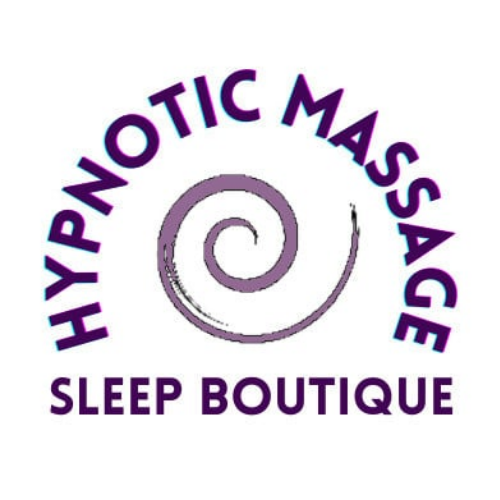Stable Sleep For All
So, fellow traveler on this giant rock in space, how are you sleeping these days? Really? You sleep just fine, you say? Lucky you. But if you’re like most people sleep is something we wish we did better. Most of us yearn for “better” and/or “longer” sleep. What we humans need is Stable Sleep.
According to Sleep Research Society, 85% of surveyed Americans do not feel rested regularly. Many of these same Americans don’t seem to realize how important STABLE sleep is since very few strive to make sleep an important part of their daily health goals. During the same survey, the same people were asked what they try to do daily to stay generally healthy. Almost everyone put down exercising, eating more fruits and veggies, limiting alcohol intake, and not smoking. Very few mentioned sleep at all.
Stable sleep is defined as “Not only achieving 7-8 hours every night but having a full sleep cycle, including REM sleep, four to six times every night.” (#3) When I first read that I thought to myself, “Yeah, sure, that sounds impossible.” Maybe if I had no family responsibilities, no job, and a white sandy beach where these and all other daily stressors don’t exist! But here in the real world, we are of different ages, we have different responsibilities, we have different emotional, psychological, and physical challenges.
Lack of stable sleep is one of the leading causes of many physical and psychological illnesses. Not a SYMPTOM of but one of the CAUSES of chronic illnesses. According to a CDC study published in 2020:
“...insufficient sleep has been linked to the development and management of a number of chronic diseases and conditions, including type 2 diabetes, cardiovascular disease, obesity, and depression.” (#1)
The good news is that even with all our human differences sleep experts have figured out many steps that every one of us can take to help achieve nightly stable sleep. As a lifetime “bad sleeper”, I can attest that they work!
______________________________________________________________________
“My Hypnotic Sleep Massage was amazing! It definitely helped me to wind down and taught me a few beneficial practices to do before bed to help the sleep process. I would recommend this type of massage to everyone!”
Christine
______________________________________________________________________
So, how can we use this knowledge to get Stable Sleep for ourselves? Rebekah Delling is a Licensed Massage Therapist who has developed her unique Sleep Massage technique. She has been a massage therapist for over 20 years, with the last 7 years focusing on the science of sleep. Before Covid, her clinic in Pittsburgh, PA was open for 13 years where she had many regular clients.
Tell me a bit about your background. What started your journey that led to helping others achieve Stable Sleep?
I’ve struggled with sleep since I was a young child. As a night owl, I have trouble falling asleep and then have trouble getting up the next morning. The world is set up for morning people! But after studying sleep for many years, I figured out some of the secrets to stable sleep and want to share the knowledge I acquired.
I hear many people talking about how they wish they had “better” sleep. Without getting too scientific can you tell me what the phrase Stable Sleep means? And how does it differ from “better” sleep?
Stable sleep means regularly getting 7-8 hours of quality, restorative sleep every night. Achieving this requires dedication to sleep hygiene and a regular bedtime routine. Better sleep is a non-specific subjective term that is hard to measure whereas stable sleep is measurable and quantifiable.
How do you incorporate this knowledge into a sleep massage for your client?
During a sleep massage session, we will discuss your current sleep hygiene and bedtime routines and look for areas of improvement. Then we make a sleep plan that you can implement that same night. Then we move onto the table for a sleep massage that is designed to engage your relaxation system and lull you into Alpha, the state before sleep. At the end of the massage, we incorporate guided meditation and hypnotic suggestions to help you sleep better that night.
What has been your experience with clients and this method?
Clients who have stuck with the sleep plan as recommended reported sleeping better starting that same night. Clients who follow up with regular check-ins and who receive massages every 2 to 3 weeks reported more nights of stable sleep than those who were sporadic in their implementation.
______________________________________________________________________
Thank you so much for that information, Rebekah!
Anyone out there ready to achieve more stable sleep???
Our website has easy answers to many questions or please call Hypnotic Massage Sleep Boutique and ask for Rebekah, Melissa, or Kate!
#1 - Institute of Medicine. Sleep Disorders and Sleep Deprivation: An Unmet Public Health Problem. Washington, DC: The National Academies Press; 2006.
#2 - Dr. John Spencer Ellis - Sleep Institute -
#3 - Watson NF, Badr MS, Belenky G, et al.; Consensus Conference Panel. Joint consensus statement of the American Academy of Sleep Medicine and Sleep Research Society on the recommended amount of sleep for a healthy adult: methodology and discussion. Sleep. 2015;38:1161–1183


